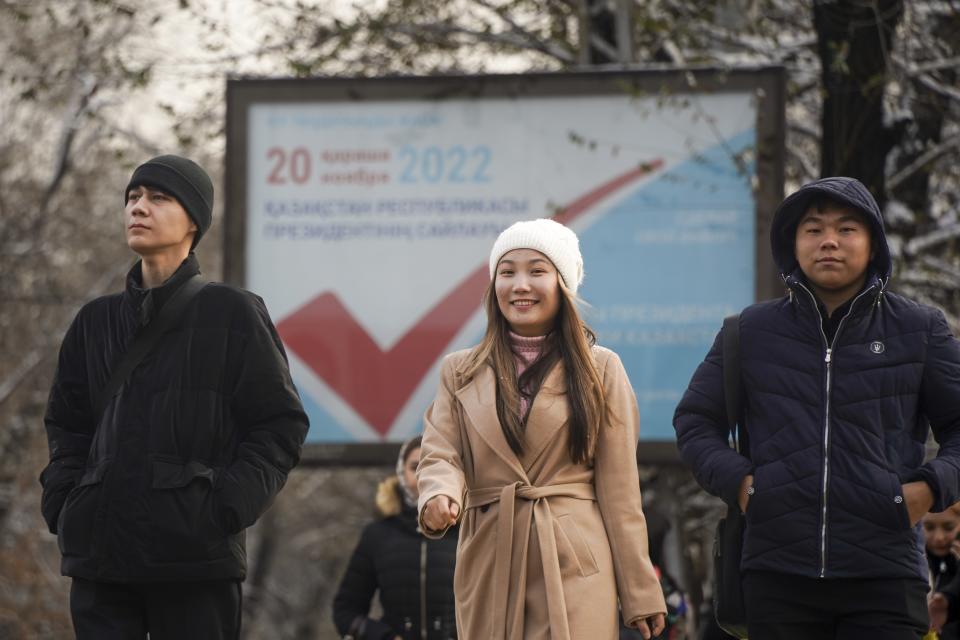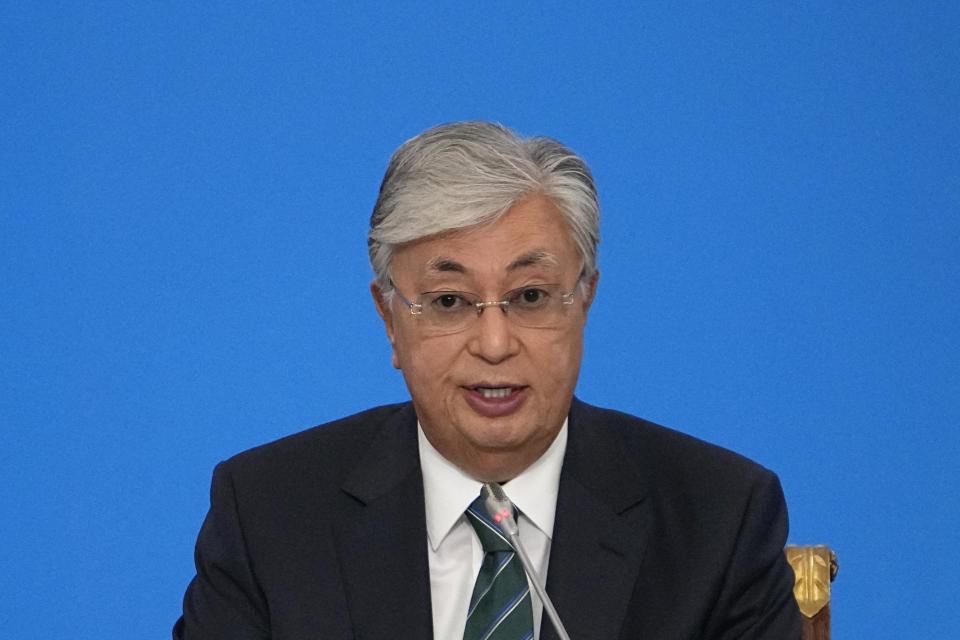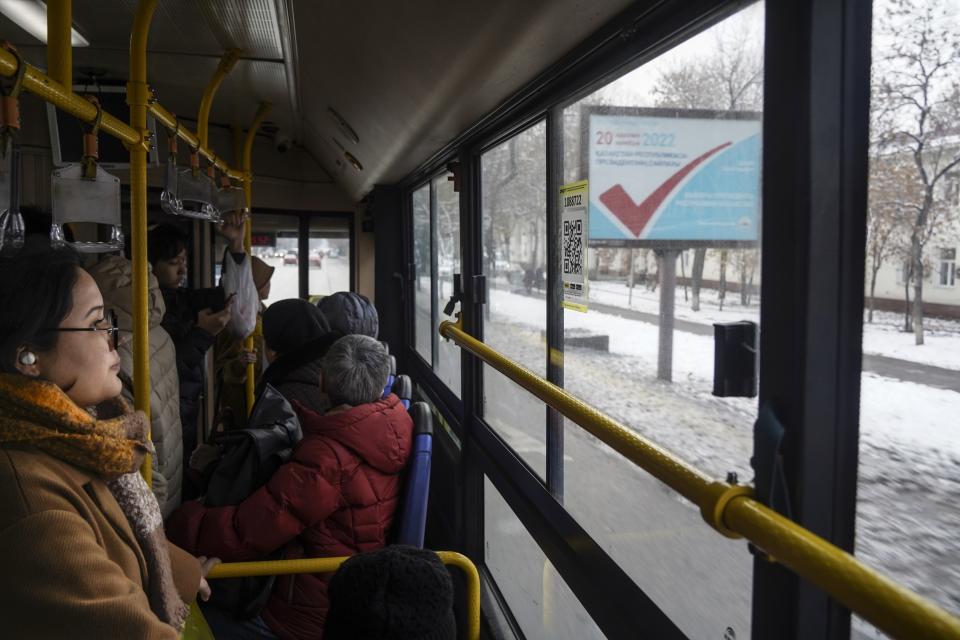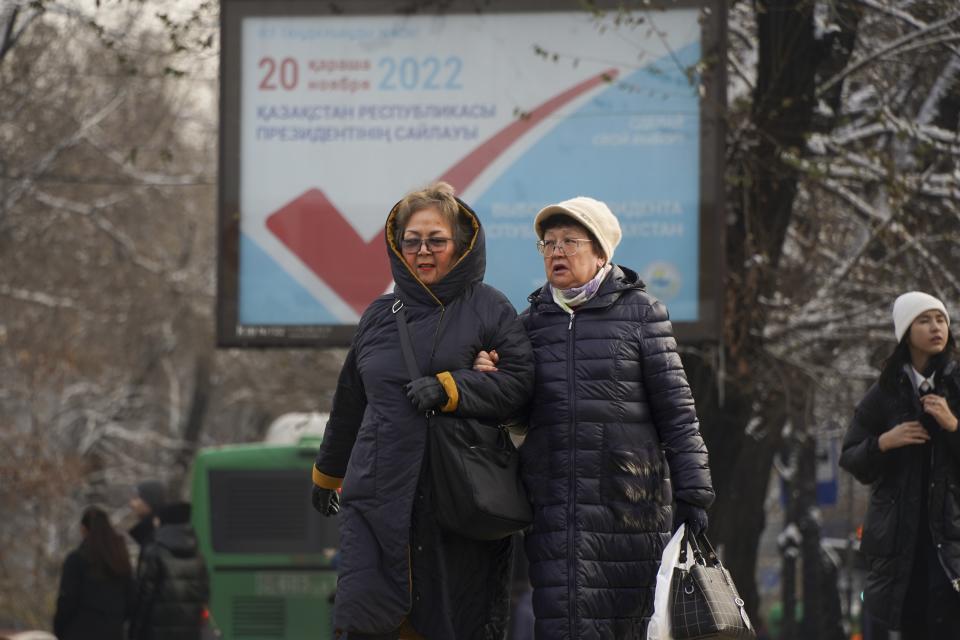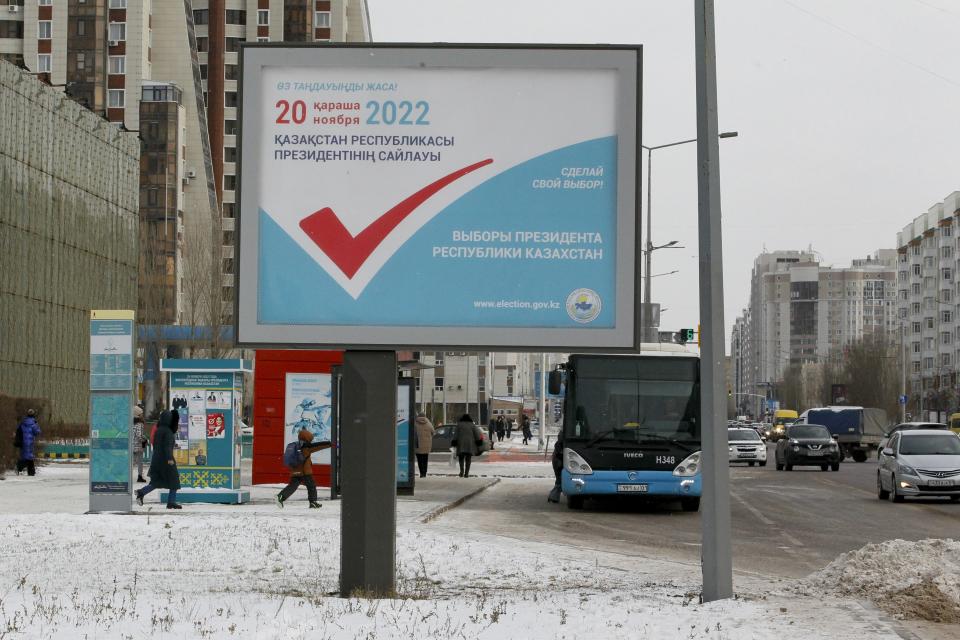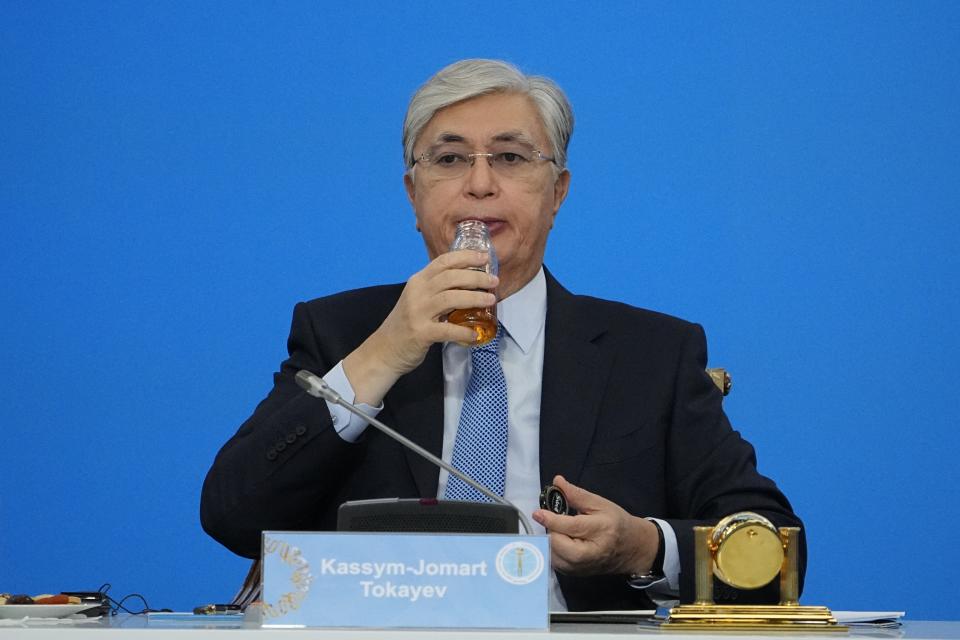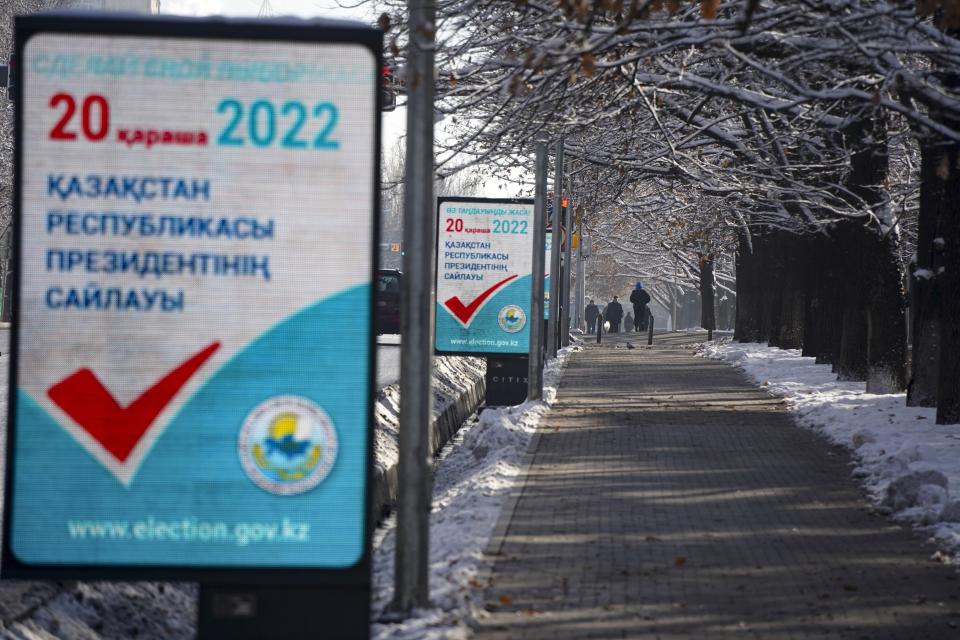Kazakhstan holds snap presidential vote after turbulent year
MOSCOW (AP) — Kazakhstan's president, who faced a bloody outburst of unrest early this year and then moved to marginalize some of the Central Asian country's longtime powerful figures, appears certain to win a new term against little-known challengers in a snap election on Sunday.
Five candidates are on the ballot against President Kassym-Jomart Tokayev. With a short campaign period that began in late October, they have had little opportunity to mount significant challenges. Tokayev, apparently confident of holding a strong advantage, stayed away from a nationally televised election debate.
The election for a seven-year term comes as Tokayev has taken steps to keep Kazakhstan's distance from longtime ally and dominant regional power Russia. He pointedly said the country did not recognize the Ukrainian regions that Russia declared to be sovereign states at the outset of the conflict that began in February.
Kazakhstan has taken in hundreds of thousands of Russians who fled after President Vladimir Putin issued a conscription order in September.
When Tokayev became president in 2019 following the resignation of Nursultan Nazarbayev, he was widely expected to continue the authoritarian course of the man who had led the resource-rich country since it gained independence from the Soviet Union. Nazarbayev remained highly influential as head of the national security council, and the capital was renamed Nur-Sultan in his honor.
Then a wave of violence shook the country in January, when provincial protests initially sparked by a fuel price hike engulfed other cities, notably the commercial capital, Almaty, and became overtly political as demonstrators shouted “Old man out!” in reference to Nazarbayev. More than 220 people, mostly protesters, died as police harshly put down the unrest.
Amid the violence, Tokayev removed Nazarbayev from his security council post. He restored the capital's previous name of Astana, and the Parliament of Kazakhstan repealed a law granting Nazarbayev and his family immunity from prosecution.
Tokayev later pushed through reforms that included strengthening the parliament, reducing presidential powers and limiting the presidency to a single seven-year term — meaning he could stay in office until 2029, if he wins Sunday's election.
“There may be optimism when it comes to (Tokayev's) promise to reform the political system even as concerns remain that Tokayev will ultimately prioritize his own interests — and those of other elites — over the cause of democratization,” analyst Temur Umarov wrote in a commentary for the Carnegie Endowment for International Peace.
Some critics have suggested that the snap election for the seven-year term is less an effort toward genuine reform than Tokayev's attempt to extend his time in office; his current term would end in 2024.
A report by the Organization for Security and Cooperation Europe's election observation mission noted that “despite the fact that candidates started to hold meetings across the country ... the campaign thus far is low-key and has generated little interest and debate.”

 Yahoo News
Yahoo News 